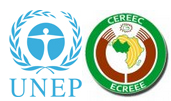A set of three studies released by the UN Environment Programme (UNEP) examines the off-grid lighting sector in the Economic Community of West African States (ECOWAS), focusing on the impact of energy subsidies, health and safety implications, and job creation potential in the sector.
The studies find transitioning from the status quo to efficient lighting from renewable sources will have positive effects on health and livelihoods in the region.
 14 January 2015: A set of three studies released by the UN Environment Programme (UNEP) examines the off-grid lighting sector in the Economic Community of West African States (ECOWAS), focusing on the impact of energy subsidies, health and safety implications, and job creation potential in the sector. The studies find transitioning from the status quo to efficient lighting from renewable sources will have positive effects on health and livelihoods in the region.
14 January 2015: A set of three studies released by the UN Environment Programme (UNEP) examines the off-grid lighting sector in the Economic Community of West African States (ECOWAS), focusing on the impact of energy subsidies, health and safety implications, and job creation potential in the sector. The studies find transitioning from the status quo to efficient lighting from renewable sources will have positive effects on health and livelihoods in the region.
The study titled ‘Lifting the Darkness on the Price of Light: Assessing the Effect of Fuel Subsidies in the Off-Grid Lighting Market’ argues that efficient lighting technologies are often shut out from off-grid markets as a result of subsidies for lighting fuels, such as kerosene. As many subsidies were put in place before the new technologies became available, the paper suggests it is time for reform, explaining that the impacts of reform can be cost-effectively mitigated through social programmes.
Furthermore, fuel-based illumination can result in, inter alia, burns, poisoning, vision impairment and maternal health issues, according to ‘Light for Life: Identifying and Reducing the Health and Safety Impacts of Fuel-Based Lighting.’ In addition, the report, which analyzes data from 112 sources covering 33 countries, finds these health impacts disproportionately affect women and children.
A transition to renewable energy-sourced lighting, on the other hand, would improve livelihoods through the creation of jobs, as described in the study titled ‘Light and Livelihood: A Bright Outlook for Employment in the Transition from Fuel-Based Lighting to Electrical Alternatives.’ While kerosene distribution accounts for 20,000 full-time jobs in the ECOWAS region, the paper finds that 500,000 new jobs could be created though the adoption of alternative technologies and their related value chains.
The studies were produced in collaboration with the ECOWAS Centre for Renewable Energy and Energy Efficiency (ECREEE) and the German Federal Ministry for Economic Cooperation and Development (BMZ). In the ECOWAS region, more than 178 million people lack access to the grid. [ECREEE Press Release] [World Bank Lighting Africa Press Release] [Publication: Lifting the Darkness on the Price of Light: Assessing the Effect of Fuel Subsidies in the Off-Grid Lighting Market] [Publication: Light for Life: Identifying and Reducing the Health and Safety Impacts of Fuel-Based Lighting] [Publication: Light and Livelihood: A Bright Outlook for Employment in the Transition from Fuel-Based Lighting to Electrical Alternatives]